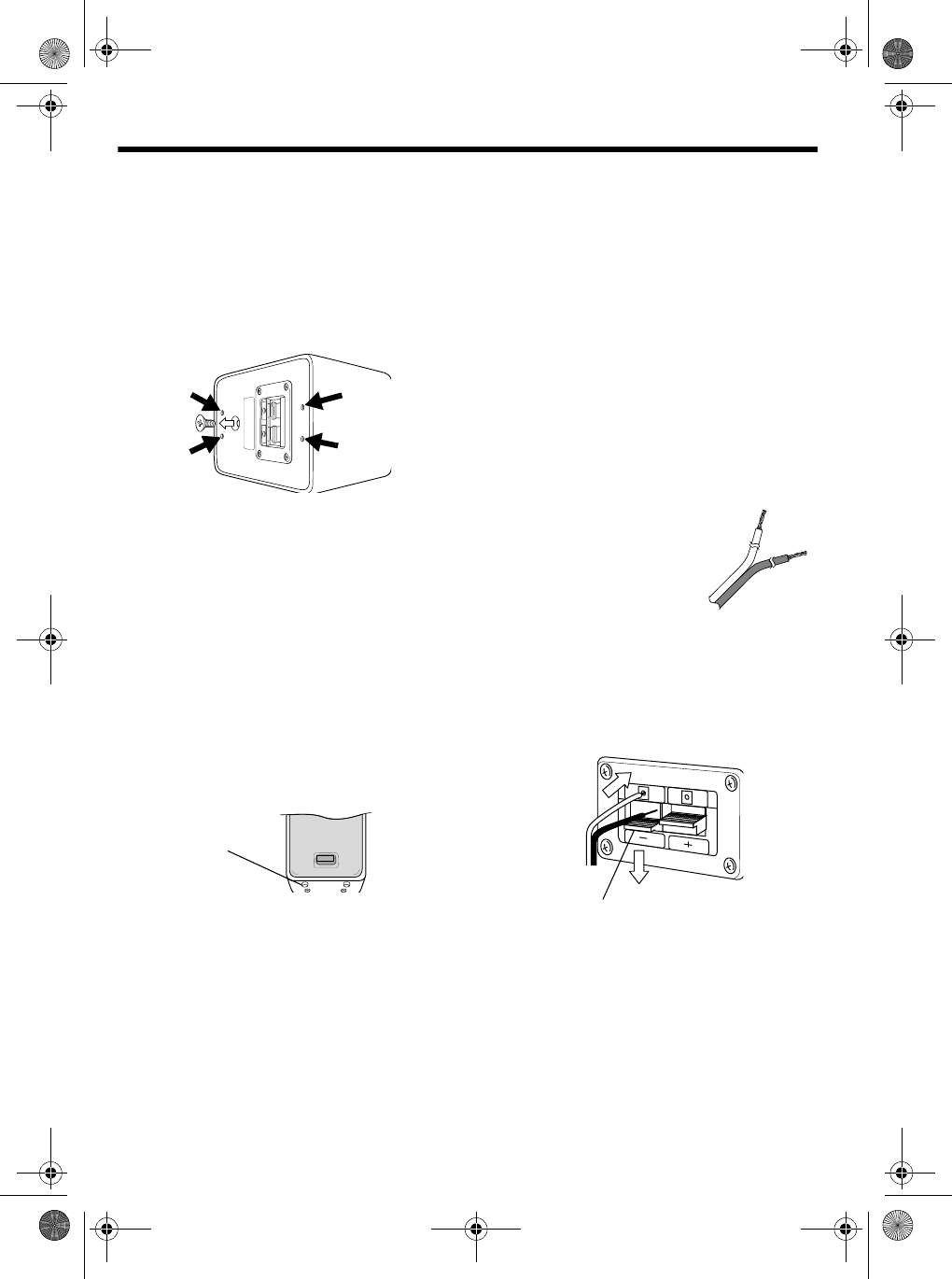
2
Note: When you use the
1
/
4
-inch wall-
mount bracket, remove the screw on the
back panel of the speaker so you can thread
the ball shaft. For any other type of
mounting bracket, use the mounting holes
(indicated by the arrows) and leave the
screw in place.
ATTACHING THE RUBBER
FEET
Rubber feet are supplied with your speaker
so it will not scratch your furniture. With
the thicker feet (marked A) positioned
toward the front corners of the speaker and
the thinner feet (marked B) positioned
toward the back corners, remove the paper
backing and press all four feet onto the
bottom of the speaker.
CONNECTIONS
With the speaker placed at the desired
location, measure the distance from the
speaker to the amplifier. Use 18-gauge
speaker wire for a distance of 50 feet or less.
For a distance greater than 50 feet, use a
heavier 16-gauge wire.
For the maximum bass response and overall
best performance, connect the speaker in
phase (– to – and + to +).
Speaker wire is either color-coded, with a
different color on each side, or coded with a
ridge or stripe on one side to identify the
wire’s different sides, making the connection
process easier. RadioShack stores sell
speaker wire to meet most needs.
Follow these steps to prepare the wire and
connect the speaker.
1. Separate the wire con-
ductors for a length of
about 2 inches, then
remove about
1
/
2
inch
of insulation from the
wire’s ends using a wire
stripper.
2. Push down the speaker’s black tab to
open the negative (–) terminal and
insert one of the wire’s conductors.
Release the tab.
3. Push down the speaker’s red tab to open
the positive (+) terminal and insert the
wire’s other conductor. Release the tab.
4. Using the speaker wire’s coding as a
guide, connect the other end of the
speaker wire to the amplifier’s
corresponding (right or left) speaker
terminals.
Rubber Feet
Black Tab
40-5001.fm Page 2 Thursday, August 12, 1999 2:35 PM






